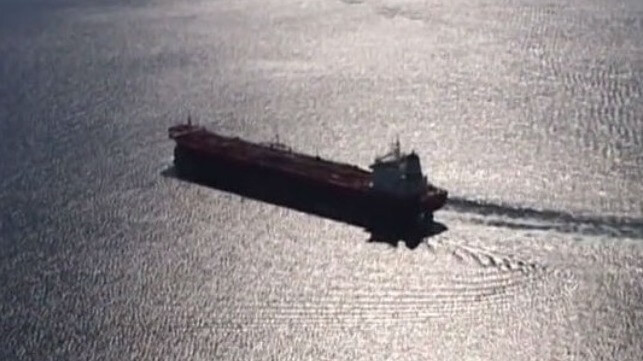EU Adopts New Round of Russian Sanctions Focusing on 50 Shadow Tankers

Hungary as the current presidency of the Council of the European Union announced today, December 11, the adoption of the 15th round of sanctions over the past three years aimed at disrupting Russia’s oil trade and revenue sources. The package is reported to focus on the shadow tanker fleet dramatically increasing the number of crude oil and gas tankers listed as well as entities supporting the trade and supplying Russia with drones.
“The adopted sanctions constrain the activity of additional vessels of third states operating to contribute or support actions or policies supporting Russia’s actions against Ukraine,” Hungary wrote on social media shortly. The package, which is the only one passed while Hungary was leading the council, had been stalled over last-minute political maneuvers after the European Parliament previously called for the action and the foreign ministers reported their support for expanding the restrictions.
Final details of the new package will be released after the foreign ministers of the member countries meet to approve the package. That is expected to happen on next Monday, December 9.
The final number of tankers being included in the package varies by report, but it appears to be between 45 and 50 vessels. The EU previously listed 27 vessels but had been under pressure to expand its efforts. Last month, the UK enacted its largest package of sanctions to date noting that it had reached 73 oil tankers which it noted was ahead of the U.S. which had listed 39, and the European Union which sanctioned 19 tankers.
Media reports are suggesting the EU’s next package will give it the highest total with approximately 80 vessels blocked for actions undermining the G7 imposed price cap on Russian crude. Several firms supporting the tanker trade will also be listed as well as reports of 30 other entities and 50 individuals in the 15th package.
While the sanctions and the limits on access to ports, supplies, and insurance are having an impact on the fleet, it remains a small faction of the shadow fleet. Estimates put the number between 600 and 800 vessels operating outside international regulations to support the Russian oil trade as well as Iran and Venezuela. China and India are the largest buyers with reports saying Russia between 2022 and mid-2024 has received approximately $500 billion in oil revenues.
For the first time, the EU will also be listing several Chinese companies. The reports said the companies including at least one in Hong Kong have been linked to efforts supplying drones and equipment to the Russian military.
Adoption of the package had been delayed by political maneuvers. Some countries were reported to be pushing for wider restrictions on Russian oil and gas. The Czech Republic was able to maintain its exemption for six months for Russian oil products coming through Slovakia. However, the news outlet Politico reports it has seen a letter sent to the EU by 10 countries calling for new restrictions on Russia’s natural gas trade in 2025 as well as aluminum and nuclear fuel.
Experts predict the council will become more aggress after Hungry relinquishes the leadership to Poland on January 1. The council presidency rotates at six-month intervals among the member countries. Poland will lead the council for the first half of the year followed by Denmark, which is one of the most vocal critics of the shadow fleet citing the dangers it faces with the uninsured vessels transiting into and out of the Baltic.
No comments:
Post a Comment